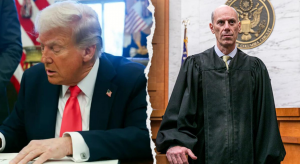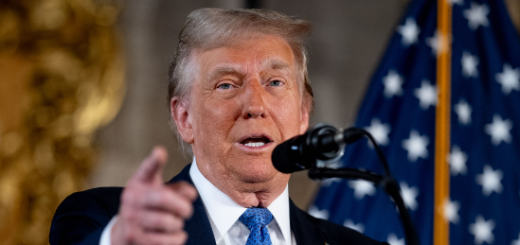Legal Debate Erupts After Judge Halts Deportation Order for Venezuelan Nationals
A recent decision by U.S. District Judge James Boasberg to temporarily halt the deportation of certain undocumented Venezuelan individuals—identified by the Trump administration as members of criminal organizations—has sparked intense legal and political debate.

The ruling blocks the federal government from enforcing a deportation directive under the Alien Enemies Act (AEA), a centuries-old law that grants presidents authority to remove foreign nationals during times of war or national threat.
Legal analysts, including Fox News contributor and former defense attorney Gregg Jarrett, argue that the judge’s action contradicts long-standing Supreme Court precedent.
Jarrett referenced the 1948 Supreme Court case Ludecke v. Watkins, in which the court upheld the constitutionality of the AEA, affirming that decisions made under the Act fall under presidential discretion and are not subject to judicial review.
“When a president invokes the Alien Enemies Act, the courts—including the Supreme Court—do not have the authority to override it,” Jarrett said.
“This is rooted in the principle of separation of powers, particularly in matters of national security and foreign policy.”
In his published column, Jarrett underscored the “political question doctrine,” a legal principle that limits the role of courts in reviewing executive decisions tied to foreign affairs or national defense.
He likened the situation to how courts cannot intervene in military operations or intelligence activities, reinforcing that immigration enforcement in the context of national security falls within the same constitutional boundary.
Watch:
Critics of Judge Boasberg’s ruling argue that it undermines the president’s lawful powers during a time of heightened security concerns, while others support the decision as a necessary check on executive authority.
The Trump administration had previously labeled certain undocumented groups from Venezuela as criminal threats and planned to remove them without the typical court proceedings—drawing on provisions of the AEA that date back to 1798.
While the White House has not issued an official response to the ruling, legal observers suggest the case could eventually move to the appellate level or even the Supreme Court, potentially reigniting debates about the scope of executive power and immigration enforcement.
The public reaction remains mixed, reflecting ongoing national divisions over immigration policy, judicial authority, and the balance of powers within the U.S. government.




























